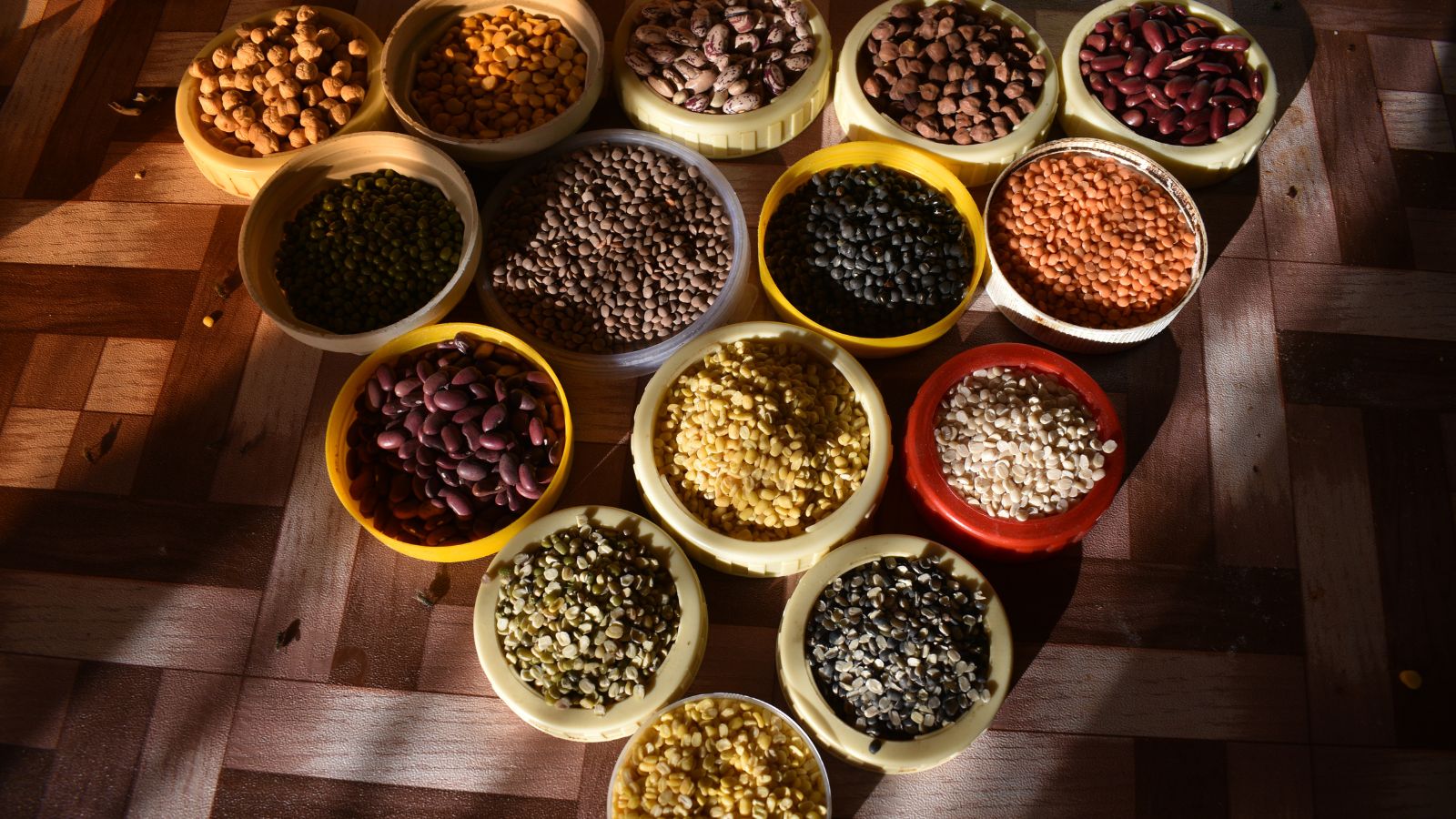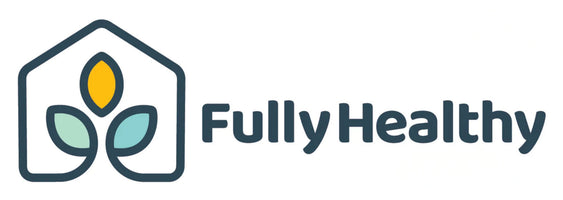
Are Lentil Beans Gluten Free? Learn the Facts and Stay Healthy
Photo Credit: Canva Pro
Lentil beans are naturally gluten-free, making them a safe food for most people with celiac disease or gluten intolerance. But wheat can sometimes get into lentils while they are being grown or processed.
To be sure that your lentils are gluten-free, you should buy them that way and sort and rinse them before cooking. You can eat gluten-free with confidence if you know which beans are safe and which ones you should stay away from.
Are Lentil Beans Gluten-Free?
Photo Credit: Canva Pro
Lentil beans are naturally gluten-free. They are a type of legume family and their edible seeds. Wheat or barley, which contain gluten, can sometimes get mixed in with them while they are being grown or processed. To eat gluten safely, you need to know how to pick out and cook lentils.
What Science Says About Lentils and Gluten
To begin with, lentils don't have gluten, but because of how they are grown, they can mix with other grains like wheat. Gluten Free Watchdog studies have shown that gluten-containing grains have been found in dry lentils from a number of various grocery stores.
-
Dry lentils: Safe if they don’t have gluten containing grains.
-
Gluten level: Should be under 20 parts per million to be considered gluten free.
-
Whole lentils: Green lentils and black lentils are safer when labeled gluten-free.
-
Cross contamination: Happens easily during harvest and transport.
How to Safely Prepare Lentils for a Gluten-Free Diet
People who don't eat gluten can eat lentils much safer if you take a few extra steps when you cook them. When grains are cleaned properly, most of the cross-contamination is gone.
-
Sort carefully: Look through dry lentils by hand to spot other grains.
-
Rinse thoroughly: Wash lentils under cold water to remove dust and debris.
-
Buy certified: Choose dried lentils labeled gluten-free at trusted grocery stores.
-
Avoid bulk bins: They often have a high risk of gluten cross contact.
What Beans Are Not Gluten-Free?
Photo Credit: Canva Pro
Beans don't normally contain gluten when they are in their natural state, but a lot of bean products you can find in stores may contain gluten. Usually, this happens when the food is processed or when new added ingredients.
Types of Bean Products That May Contain Gluten
Gluten might be hidden in some bean products, especially ones that are already made and ready to eat. Before you eat beans, you should read all the labels.
-
Canned beans: Some brands add sauces or flavorings with gluten.
-
Frozen meals: Bean-based frozen dishes can include wheat additives.
-
Bean dips and spreads: Watch out for added flavorings like malt vinegar.
-
Packaged lentil soup: Some might contain gluten containing grains.
How Cross-Contamination Happens in Bulk Bins and Packaging
It's risky to buy in bulk at grocery stores because dried beans can easily mix with other grains. People who are sensitive to gluten can be hurt by even a small amount.
-
Shared bins: Bulk dried beans may mix with wheat if bins are reused.
-
Handling issues: Using the same scoops can cause contamination.
-
Hidden grains: Other legumes like peas or chickpeas may touch gluten containing grains.
-
High-risk products: Always check if dry lentils or dried beans come from a certified facility.
Why Do Lentils Say "May Contain Wheat"?
Photo Credit: Canva Pro
A label that says "may contain wheat" is on a lot of lentil packages. This is a warning that the lentils may have come into contact with gluten while they were being grown, picked, or packed.
Understanding Cross-Contamination Risks During Farming and Storage
Lentils often grow near fields of barley, wheat, and other grains. This means that gluten often comes into contact with other foods, even in whole lentils like green lentils, red lentils, and brown lentils.
-
Shared fields: Lentils and wheat may grow side by side.
-
Harvest equipment: Machines used for other grains can mix gluten into lentils.
-
Storage risks: Lentils stored in shared silos can get cross contaminated.
-
Gluten free watchdog reports: Even high-quality brands sometimes find errant gluten containing grains.
Should People with Celiac Disease Trust "May Contain Wheat" Labels?
If you have celiac disease or are sensitive to gluten, even small gluten content can hurt your digestive health and immune system. It's smart to be careful.
-
Avoid uncertified products: Choose only certified gluten-free lentils.
-
Check dried lentils: Especially those from bulk sections or smaller brands.
-
Watch your health: Eating gluten by mistake can cause digestive issues and other symptoms related to gluten intolerance or celiac disease.
-
Prefer trusted brands: Buying certified plant based protein like black lentils or beluga lentils is safer.
What Are the Best Beans for Gluten-Free People?
Photo Credit: Canva Pro
That's why it's important to choose lentils and beans that are safe on their own and haven't been contaminated with gluten. Because they are high in fiber, protein content, and other nutrients, beans and lentils are a good choice for healthy eating.
Safe Gluten-Free Beans You Can Eat
Many beans and lentils are naturally gluten-free. They are low in carbs, have fiber, and are made from plants. Including a range of these foods in your diet can help your digestion and make you healthier.
-
Kidney beans: Packed with fiber and great for heart health.
-
Chickpeas: A good option for vegan diets and low carb meals.
-
Black beans: High in protein and helps in weight loss goals.
-
Lentils: A versatile legume that fits gluten-free and vegan diets.
Why Certified Gluten-Free Beans Are the Safest Choice
Some different dry lentil products could get contaminated with other types while they are being grown or packed. By buying certified gluten-free beans, you can eat lentils without worrying about getting sick.
-
Certified brands: Tested for gluten contamination below safe levels.
-
Trusted labels: Look for third-party gluten-free certifications.
-
Safer foods: Certified products are cleaner than bulk options.
-
Peace of mind: You can eat lentils without worrying about gluten.
Are Lentils Anti-Inflammatory?
Not only do lentils have a lot of plant-based protein, they are also known to help reduce inflammation. Eating lentils can help people with chronic diseases stay healthy and manage their symptoms. Their nutrients help the digestive system, protect the heart, and keep energy levels high.
How Lentils Help Reduce Inflammation
Lentils have a lot of minerals, fiber, and antioxidants that help fight inflammation. If you eat lentils, they might help protect you from long-term diseases like diabetes, heart disease, and digestive problems.
-
High fiber: Helps reduce inflammation in the gut.
-
Antioxidants: Protect cells from damage.
-
Rich minerals: Iron, magnesium, and potassium for better health.
-
Other nutrients: Support the immune system naturally.
Other Health Benefits of Eating Lentils Regularly
Lentils are good for you in many ways, not just because they reduce inflammation. They contain complex carbohydrates that help keep blood sugar levels stable. Lentils can support weight management and heart health due to their high fiber and nutrient content.
-
Support digestion: High fiber makes digestion smoother and easier.
-
Aid in weight loss: Fewer calories but full of important nutrients.
-
Promote heart health: Help lower cholesterol and blood pressure.
-
Good vegan protein: Ideal substitute for grain-based foods like bread.
What FullyHealthy Offers for Gluten-Free Living
FullyHealthy is a reliable online store that helps people discover safe gluten-free goods. It has gluten-free options, like Wild Zora lentil soup products, which are great for people who want to eat plant-based foods safely.
Gluten-Free Lentil Products Available at FullyHealthy
There are many gluten-free dry lentil products at FullyHealthy that can help you stay on your gluten-free diet. Their goods are made for people who can't eat gluten and need help digesting food.
-
Wild Zora French Lentil Soup: A ready-to-cook lentil soup with carrots, onion, and celery.
-
Wild Zora Greek Garden Lentil Meal: Includes lentils with tomatoes and spinach, perfect for low carb meals.
-
Certified safe: Made to avoid lentils getting mixed with gluten containing foods.
-
Easy meals: Great for quick and healthy vegan or gluten-free eating.
Why FullyHealthy is a Trusted Source for Specialized Diets
It's easier to eat lentils safely if you choose FullyHealthy. Their main goal is to make safe products that help your digestive health and manage chronic diseases.
-
Focus on quality: Products carefully selected for gluten-free needs.
-
Supportive foods: Ideal for those avoiding oats, grain, and other gluten containing ingredients.
-
Convenient shopping: Everything available in one trusted store.
-
Safe choices: Helps prevent gluten exposure when you prepare lentils at home.
Final Thoughts
If you can't have gluten, lentil beans are a good choice. Normally, lentils don't have gluten, but they can get it when they're grown. When following a recipe to cook lentils, always choose safe, certified products.
Lentils are full of vitamins, fiber, and carbs that help your body digest food and keep your weight in check. Lentils are a nutrient-dense plant-based option that offers more fiber and protein compared to potatoes and bread. Adding lentils to your meals can help your heart and overall health.
FAQs
Are lentils gluten free naturally?
Yes, lentils are gluten free naturally, but they can be contaminated if processed with gluten grains.
Can cooked lentils replace potatoes in recipes?
Yes, cooked lentils are a great low-carb alternative to potatoes in healthy recipes.
Do lentils have carbohydrates?
Yes, lentils have carbohydrates, but they are high in fiber and better than other grains like bread.
Are lentils a good source of vitamins?
Yes, lentils are packed with important vitamins that support heart health and digestion.
How can I add lentils to gluten-free recipes?
You can use lentils gluten free in soups, salads, cooked meals, or replace grains in many recipes.

Leave a comment